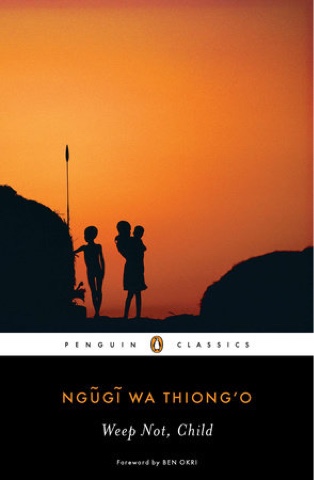Kenya is a fascinating country, sadly under-represented in literature. These are a few eclectic picks that make interesting reading for anyone wanting to know more about this place and its history.
It's Our Turn to Eat, by Michaela Wrong is a non-fiction account of a Kenyan whistleblower who started out as the anti-corruption tsar to the government. I found this book dense and heavy-going but very rewarding as an invaluable background guide to tribal effects on politics in Kenya. Really interesting and so useful to an outsider living in Kenya. A fascinating attempt to answer the decades old questions of why corruption is so rife in Africa, and when Africans might start to put wider national interests ahead of narrower tribal ones. Definitely worth ploughing through.
Circling the Sun, by Paula McLain is one of my favourite books in a long time. It is a fictionalised account of the life of Beryl Markham, the famous aviator, in particular her early life in Kenya before she became an aviator. I was utterly transfixed by it. It is a read-in-one-sitting, get completely transported to another place kind of book. I did not want it to end. For me the magic of this book is in the setting description - the parts of Kenya that I know now are brought to life, but life 70 years earlier! Enchanting.
Leopard at the door, by Jennifer McVeigh is a relatively recently published novel describing the Mau Mau emergency through the eyes of an 18 year old girl returning home to her father's farm after 6 years at school in England to find everything changed almost beyond recognition. It is a coming of age novel that also documents the Mau Mau emergency in detail, attempting to show both sides of the story. I enjoyed it and while I did learn things about this period of Kenyan history I felt the novel was guilty of projecting modern values onto these characters from 60 years ago, with the result that the characters and their actions were not always believable. Also, I never felt that the Africa being described was the real Africa. Overall though this is an enjoyable novel with a compelling plot and something to teach the reader about a part of history that is little documented in fiction.
Weep not, Child, by Ngugi Wa Thiong'o is in many ways similar to Leopard at the Door, being a coming of age novel describing life at the time of the Mau Mau emergency. However, this novel is written from the viewpoint of a young Kikuyu boy trying desperately to continue with his education as his family becomes ever more deeply involved with the Mau Mau. Insightful, personal, and a well-written page turner, this really is a must-read.
The Constant Gardener, by John LeCarre is another favourite of mine. John Le Carre is not an author I would usually pick up, but I was hooked by the film and wanted to read the book and I wasn't disappointed. As is so often the case, the book was even better than the film! Tessa, the young wife of a British diplomat in Nairobi, becomes obsessed with uncovering pharmaceutical company wrongdoing pedalling untested drugs in Kenyan slums, and is killed as a result of what she discovers. Her grieving husband picks up the cause on her behalf and travels the globe on the run, trying to expose the issue. I love the depth of relationship between Justin and Tessa and the way their love for each other shines from the page, even though their relationship is unconventional and makes many people uncomfortable. I wouldn't have expected someone known for writing spy thrillers to be a great emotional writer but the way he captures human emotions in this novel (particularly love and grief) is outstanding. Alongside this huge emotional involvement for the reader is also a fast paced thriller and some superbly evocative descriptions of Kenya.
A Change in Altitude, by Anita Shreve tells of a young newlywed couple who embark on the adventure of spending a year living and working in Kenya. Once there they are befriended by a British couple and undertake an expedition to climb Mt Kenya with them. During the ascent an horrific accident occurs and all 4 lives are changed forever. A compelling study of how we cope with tragedy and how difficult it can be to forgive.
Promises to Keep: A British Vet in Africa, by Hugh Cran is the light-hearted memoir of a vet living and working in Nakuru for over forty years. It is anecdotal in tone and highly entertaining, whilst also providing some social commentary. Cran has a great knack for describing the sights, sounds and people of Kenya and this book is highly recommended. Very enjoyable.
Do you have any books you would add to this list?















